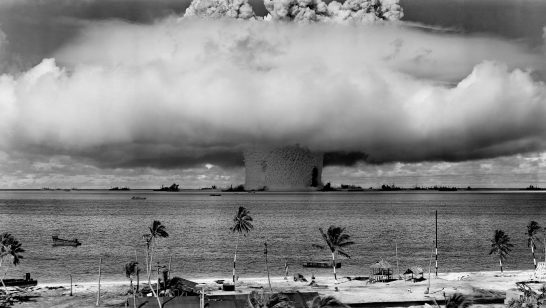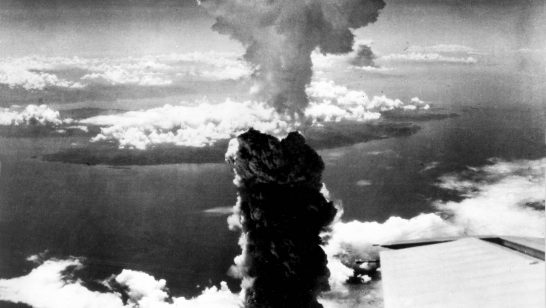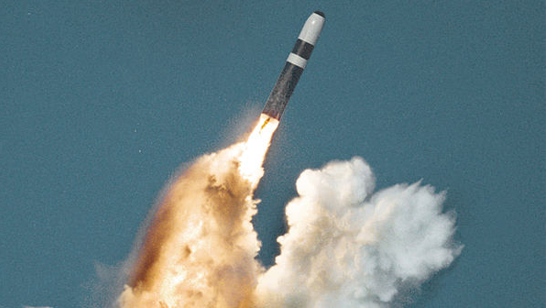
A number of analysts have in recent months contended that the NPT process is at risk of “crumbling” or is damaged “beyond repair”. But the fear-mongering is unfounded. In fact, the impending doom of the NPT has been prophesized again and again since the 1960s. However, not only is the NPT “collapse thesis” wrong, it is detrimental to the goals of non-proliferation and disarmament. The narrative that the NPT is endlessly on the verge of disintegration fuels the thinking that nuclear restraint is a painful sacrifice and implicitly calls on the NPT community to protect the status quo rather than to push for the advancement of the Treaty’s goals.
The triumph of non-proliferation
In the 1960s, several governments viewed the NPT with intense hostility. The German Cabinet Minister Franz-Josef Strauß branded the NPT a “Versailles of cosmic dimensions”. As late as 1978, the Chinese government described the Treaty as “a conspiracy concocted by the USSR and the U.S. to maintain their nuclear monopoly.” But over time, as the superpowers twisted their allies’ arms and the non-proliferation norm took hold, opposition to the Treaty waned. NPT sceptics such as Algeria, Argentina, Brazil, Chile, China, France, Germany, Saudi Arabia, South Africa, Spain, Switzerland, and Thailand all eventually joined. As of today, only five UN member states are not party to the NPT. Only a single state, North Korea, has withdrawn. Four of the NPT’s non-nuclear-weapon states parties have renounced nuclear weapons (South Africa, Ukraine, Belarus, Kazakhstan), and many more have reversed nuclear-weapon programmes.
The poverty of the NPT collapse thesis
It is striking, however, that the remarkable period of non-proliferation norm consolidation from the mid-1960s till today has produced a ceaseless flood of expert assertions that the NPT is about to collapse. Proponents of the collapse thesis commonly argue that a continued reluctance by the nuclear-weapon states to move more decisively towards disarmament will push non-nuclear weapon states to “go nuclear” or defect from the NPT. In other cases, collapse theorists argue that proliferation by one state (India, North Korea, Iran…) will lead to a chain reaction whereby numerous other states will defect from the NPT and construct their own nuclear armouries.
The collapse thesis is often invoked in support of abolition. If the alternative to disarmament is NPT collapse and ensuing global pandemonium, so goes the argument, the nuclear-armed states might prefer to reduce and eliminate their nuclear arsenals.
But the use of the collapse thesis as an argument for disarmament is in fact deeply counterproductive, let alone inaccurate. Based on the assumption that a large group of non-nuclear states are perpetually looking for reasons to arm themselves with weapons of mass destruction – implicitly representing nuclear restraint as a surrender of something positive – the collapse thesis upholds the trope that denuclearization is a struggle against nature. It supports the argument that meaningful disarmament measures can only be pursued once “those without nuclear weapons […] feel no need to acquire them”.
One version of the collapse thesis states that the NPT will, or could be, seriously damaged by a failure by its parties to reach a negotiated final document at two review conferences in a row. But the NPT has not only survived such “failures”, it has thrived and increased its membership. In fact, the sixth NPT Review Conference, in 2000, was the first such conference to reach consensus on a fully negotiated final document. The CTBT, START, and New START were negotiated on the back of the “failed” conferences in 1990 and 2005.
Nevertheless, scholars and policy makers have continued to argue that two “failures” in a row could lead to calamity. Accordingly, following the 2005 Conference’s inability to reach a settlement, the parties were desperate to reach agreement in 2010. The result was the adoption of what one commentator described as a “feeble” disarmament document that largely recycled the commitments agreed to ten years before. Critics have argued that this cycle of intermittent “success” and “failure” creates a false sense of progress that merely perpetuates existing risks and power structures.
The 2020 Review Conference
As all review conferences before it, the NPT Review Conference in 2020 will no doubt prove a discordant affair. The nuclear-weapon states will talk about the “deteriorating security environment” and attempt to buy as much non-proliferation for as little disarmament as possible. Certain non-nuclear-weapons states, for their part, will attempt to trade concessions on non-proliferation for meaningful gains on disarmament. This “transactional” dynamic has been the defining feature of NPT diplomacy since the mid-1960s. And after more than half a century, the verdict must be that the process has generated considerably more heat than light.
Worse, non-nuclear-weapon states’ attempts to use progress on additional non-proliferation measures as negotiating leverage for concessions on disarmament has arguably had the opposite of its intended effect. Intransigence on the development of more robust “supply side” non-proliferation measures has both fostered discord and suspicion, allowing the nuclear-weapon states to make further excuses for their lack of progress on disarmament, and worked against attempts at creating a stronger norm against nuclear weapons.
The NPT is one of the most widely supported agreements in international society. The challenge facing its supporters is not one of damage-limitation or “protecting what we’ve got”. The primary challenge facing supporters of the NPT is to extend the disarmament norm. This can be done in the following ways:
- At the 2020 Review Conference, proponents of disarmament should abandon the transactional bargaining strategy and instead aim to devalue, delegitimize, and stigmatize nuclear weapons. Rather than using progress on non-proliferation as a bargaining chip, advocates of disarmament should embrace all meaningful non-proliferation measures and seek to extend the norms against nuclear proliferation, testing, and use to also cover nuclear modernization and possession. The “humanitarian initiative” and adoption of the Treaty on the Prohibition of Nuclear Weapons (TPNW) are important contributions to this initiative.
- Proponents of disarmament should focus their efforts on norms and humanitarian principles. As long as nuclear weapons are viewed as useful, legitimate, and status-enhancing, the nuclear-weapon states will remain disinclined to implement “concrete” disarmament roadmaps such as the “13 Practical Steps” (2000) and NPT “Action Plan” (2010). Reaching Critical Will estimates that only 5 of the 22 disarmament actions agreed in 2010 were implemented by 2015. Proponents of disarmament should focus their efforts on creating the normative conditions for a future denuclearization process.
- NPT parties should not agree to a final document in 2020 at any cost. The NPT will not collapse. If no genuine progress can be made – whether on non-proliferation or disarmament – parties should resist the temptation of agreeing to a final document only for the sake of appearing agreeable. Proponents of change should not sanctify the status quo.
- In the next review cycle, parties should scrap the traditional NPT model of “nothing is agreed until everything is agreed” altogether. Rather than negotiating a technocratic, Stalinesque five-year plan that won’t be implemented, the parties should adopt a final document listing all specific views and proposals put forward, together with lists of the states that supported them. The parties should also consider a “gift basket” model as practiced at the Nuclear Security Summits, that is, to allow individual states or groups of states to adopt specific measures beyond those enjoying consensus.
The norm of non-proliferation has never been as uncontested as it is today. The NPT will not collapse. The 2020 Review Conference should endeavour to further the Treaty’s aims, not rescue the status quo.
The opinions articulated above also do not necessarily reflect the position of the European Leadership Network or any of its members. The ELN’s aim is to encourage debates that will help develop Europe’s capacity to address pressing foreign, defence, and security challenges.



